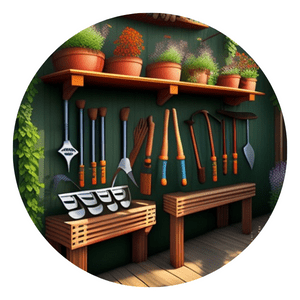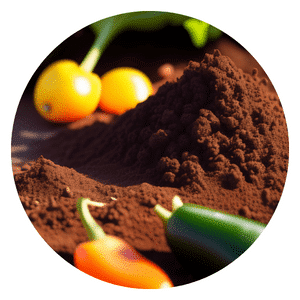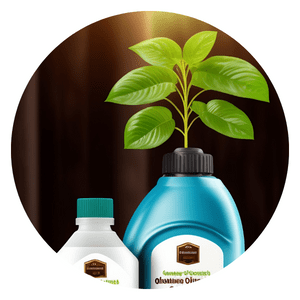How often should I fertilize my raised beds?
Raised bed gardening has gained immense popularity among both novice and experienced gardeners.
Its numerous benefits, such as improved soil drainage, reduced weed growth, and better accessibility for planting and harvesting, make it an attractive option for growing a wide range of plants.
However, one crucial aspect that can sometimes be overlooked is fertilization.
Understanding how often to fertilize your raised beds is essential to ensure healthy plant growth and bountiful yields.
In this article, we will explore the factors that influence the frequency of fertilization in raised beds and provide valuable insights on when and how to best nourish your plants for optimal results.

Raised Beds Fertilizer Menu
Initial Fertilization
This initiate fertilization process is crucial for the success of your plants in raised beds.
The organic matter added to the soil not only provides essential nutrients but also improves its structure, drainage, and water-holding capacity.
Compost or well-rotted manure is highly recommended as they are rich sources of nitrogen, phosphorus, and potassium – the primary macronutrients required for plant growth.
However, it’s important to note that initial fertilization is not a one-time event.
While incorporating organic matter before planting creates an optimal growing environment initially, additional fertilization throughout the growing season may be necessary.
The frequency of fertilizing your raised beds depends on various factors such as the types of crops you’re growing, their nutrient requirements, soil quality, and weather conditions.
Regular monitoring of your plants’ health can help determine when additional fertilization is needed.
Signs like pale leaves or slow growth may indicate nutrient deficiencies.
To maintain healthy plants in raised beds, consider using organic liquid fertilizers or slow-release granules during the growing season according to package instructions or consult with a local gardening expert for specific recommendations based on your crop choices and soil composition.
Follow Package Instructions
When it comes to fertilizing raised beds, one of the most important things to keep in mind is to follow the package instructions.
Each organic fertilizer will have its specific recommendations for application rates and frequencies, so it’s crucial to take the time to read and understand them. These instructions are designed to ensure that you achieve optimal results while also preventing over or under-fertilization.
Different organic fertilizers may have varying application rates and frequencies based on their composition and intended use.
Some may recommend a specific amount of fertilizer per square foot of bed area, while others may provide guidelines based on plant type or stage of growth.
By following these instructions carefully, you can provide your plants with the right nutrients at the right time, promoting healthy growth and abundant yields.
In addition to application rates and frequencies, package instructions may also include other useful information such as recommended methods of application (e.g., top dressing or incorporation) and any safety precautions or storage recommendations.
Taking the time to familiarize yourself with these instructions will not only help you make informed decisions but also ensure that you get the most out of your organic fertilizer investment.
Nutrient Requirements
When it comes to maintaining raised beds, one common question that arises is how often should they be fertilized?
The answer largely depends on the type of plants being grown.
For vegetables, regular fertilization throughout the growing season is crucial due to their high nutrient requirements. This ensures that they receive an adequate supply of essential nutrients for optimal growth and productivity.
On the other hand, perennials or established plants have different nutrient needs.
Once these plants are well-established in the raised beds, they generally require less frequent fertilization compared to vegetables. This is because perennials have a longer lifespan and tend to develop a more extensive root system over time, allowing them to draw nutrients from deeper soil layers.
However, it is still important to monitor their nutrient levels and provide occasional fertilization when necessary.
Ultimately, understanding the specific nutrient requirements of different plants in your raised beds will help you determine an appropriate fertilization schedule.
By providing adequate nutrition based on individual needs, you can ensure healthy growth and bountiful harvests throughout the growing season while avoiding excessive fertilizer usage that could harm both the plants and the environment.
In thriving gardens where dreams take flight, Soil teems with life, a canvas alight. With raised beds caring for roots so deep, Fertilize we must, their growth to keep. Once in the spring, as nature awakes, And then again when summer sun bakes. With gentle touch and mindful measure, Fertilize your beds, a gardening pleasure.
Chappy The Gardener
Visual Observations
When it comes to fertilizing raised beds, visual observations play a crucial role in determining the frequency and amount of fertilizer needed.
By regularly inspecting your plants, you can observe their health and growth patterns.
If you notice yellowing leaves or stunted growth, it is likely that your plants are experiencing nutrient deficiencies. This could be an indication that additional fertilization is necessary.
To ensure optimal plant growth and development, it is important to address any nutrient deficiencies promptly.
By carefully monitoring the visual cues provided by your plants, you can determine when it’s time to apply fertilizer.
However, it is essential not to overdo it as excessive fertilization can also lead to problems such as nutrient imbalances or environmental pollution.
Therefore, understanding the specific needs of your plants and making informed decisions based on visual observations will help maintain a healthy balance for your raised beds.
Visual observations serve as a valuable tool for assessing the health and growth of plants in raised beds.
Identifying signs of nutrient deficiencies such as yellowing leaves or stunted growth allows gardeners to intervene with appropriate fertilization methods when needed.
Striking a balance between providing enough nutrients without over-fertilizing ensures sustainable plant growth and minimizes potential negative impacts on both the environment and plant health.
Soil Testing
Soil testing is an essential step in determining the nutrient levels in your raised beds.
By conducting a soil test, you can identify specific deficiencies and tailor your fertilization schedule accordingly. This will ensure that your plants receive the necessary nutrients for healthy growth.
The frequency of fertilizing your raised beds depends on the results of the soil test. If the test reveals significant nutrient deficiencies, it may be necessary to fertilize more frequently to provide the missing elements.
On the other hand, if the soil test indicates adequate nutrient levels, you can follow a regular fertilization schedule.
By regularly monitoring and testing your soil, you can make informed decisions about when and how often to fertilize your raised beds. This not only saves you money on unnecessary fertilizer applications but also promotes sustainable gardening practices by minimizing excess fertilizer runoff into waterways.
Organic Matter Amendments
One important aspect to consider when fertilizing raised beds is the frequency of application.
Organic matter amendments, such as compost, worm castings, or composted manure, provide a slow-release source of nutrients that can benefit plants over an extended period.
Unlike commercial organic fertilizers that require regular application, incorporating organic matter into raised beds can provide a continuous supply of nutrients for plants throughout the growing season.
The frequency at which you should apply organic matter amendments depends on various factors.
Firstly, consider the nutrient requirements of your specific crops and their growth stages.
Younger plants may require more frequent applications compared to mature ones.
Additionally, soil conditions play a role in determining how often you need to fertilize. Sandy soils tend to drain quickly and may require more frequent applications than clay soils with better water retention capabilities.
By regularly monitoring your plants’ growth and observing any signs of nutrient deficiencies or excesses, you can determine if additional organic matter amendments are needed.
Aim for consistency in supplying nutrients while avoiding over-fertilization, which can lead to imbalances or damage plants in raised beds.
Ultimately, striking a balance between providing enough nutrients without overwhelming the soil will help ensure healthy plant growth and abundant yields.
In conclusion, the frequency of fertilizing raised beds depends on various factors such as the type of plants being grown, soil quality, and climate conditions.
While it is generally recommended to fertilize at the beginning of each growing season and then periodically throughout, it is important to monitor the health and growth of your plants to determine their specific nutrient needs.
Regular soil testing can provide valuable insights into any deficiencies or imbalances that may require additional fertilization.
Remember to always follow the instructions on your chosen fertilizer product and avoid over-fertilizing, as this can lead to nutrient runoff and harm the environment.
By maintaining a balanced approach to fertilizing, you can ensure optimal growth and productivity in your raised beds.
Click To Grow
Helps Us Grow – Share If You Like











